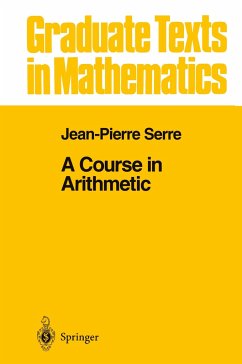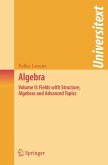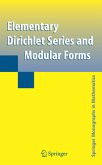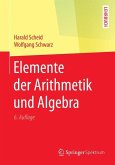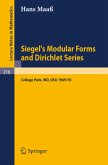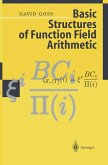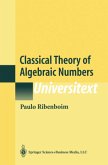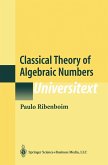Serre's A Course in Arithmetic is a concentrated, modern introduction to basically three areas of number theory, quadratic forms, Dirichlet's density theorem, and modular forms. The first edition was very well accepted and is now one of the leading introductory texts on the advanced undergraduate or beginning graduate level.From the reviews: "... The book is carefully written - in particular very much self-contained. As was the intention of the author, it is easily accessible to graduate or even undergraduate students, yet even the advanced mathematician will enjoy reading it. The last chapter, more difficult for the beginner, is an introduction to contemporary problems." American Scientist
This book is divided into two parts. The first one is purely algebraic. Its objective is the classification of quadratic forms over the field of rational numbers (Hasse-Minkowski theorem). It is achieved in Chapter IV. The first three chapters contain some preliminaries: quadratic reciprocity law, p-adic fields, Hilbert symbols. Chapter V applies the preceding results to integral quadratic forms of discriminant ± I. These forms occur in various questions: modular functions, differential topology, finite groups. The second part (Chapters VI and VII) uses "analytic" methods (holomor phic functions). Chapter VI gives the proof of the "theorem on arithmetic progressions" due to Dirichlet; this theorem is used at a critical point in the first part (Chapter Ill, no. 2.2). Chapter VII deals with modular forms, and in particular, with theta functions. Some of the quadratic forms of Chapter V reappear here. The two parts correspond to lectures given in 1962 and 1964 to second year students atthe Ecole Normale Superieure. A redaction of these lectures in the form of duplicated notes, was made by J.-J. Sansuc (Chapters I-IV) and J.-P. Ramis and G. Ruget (Chapters VI-VII). They were very useful to me; I extend here my gratitude to their authors.
This book is divided into two parts. The first one is purely algebraic. Its objective is the classification of quadratic forms over the field of rational numbers (Hasse-Minkowski theorem). It is achieved in Chapter IV. The first three chapters contain some preliminaries: quadratic reciprocity law, p-adic fields, Hilbert symbols. Chapter V applies the preceding results to integral quadratic forms of discriminant ± I. These forms occur in various questions: modular functions, differential topology, finite groups. The second part (Chapters VI and VII) uses "analytic" methods (holomor phic functions). Chapter VI gives the proof of the "theorem on arithmetic progressions" due to Dirichlet; this theorem is used at a critical point in the first part (Chapter Ill, no. 2.2). Chapter VII deals with modular forms, and in particular, with theta functions. Some of the quadratic forms of Chapter V reappear here. The two parts correspond to lectures given in 1962 and 1964 to second year students atthe Ecole Normale Superieure. A redaction of these lectures in the form of duplicated notes, was made by J.-J. Sansuc (Chapters I-IV) and J.-P. Ramis and G. Ruget (Chapters VI-VII). They were very useful to me; I extend here my gratitude to their authors.
"The book is a showcase of how some results in classical number theory (the Arithmetic of the title) can be derived quickly using abstract algebra. ... There are a reasonable number of worked examples, and they are very well-chosen. ... this book will expand your horizons, but you should already have a good knowledge of algebra and of classical number theory before you begin." (Allen Stenger, MAA Reviews, maa.org, July, 2016)

